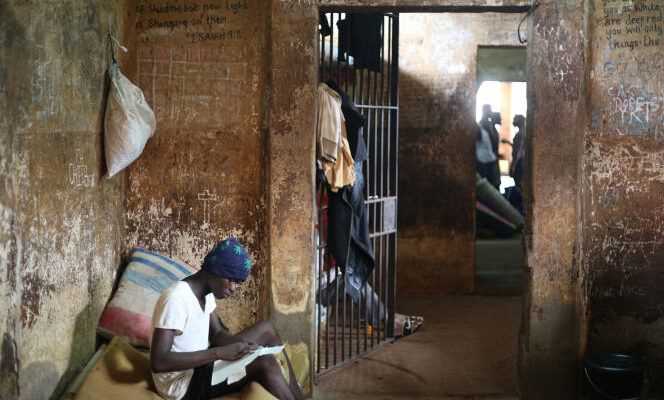The Sierra Leonean government has decided to submit to Parliament the abolition of the death penalty, maintained in the legal arsenal despite a de facto moratorium on executions, said Deputy Justice Minister Umaru Napoleon Koroma on Wednesday 12 may. It was not immediately known when the text will be presented to parliament, but the government communicated its decision to the UN Human Rights Council on Wednesday, according to Koroma.
“Once the legislation has been submitted to Parliament and approved, the death penalty story will be over.” in the country of some 7.5 million people, Koroma told AFP. The government of President Julius Maada Bio has “Made the ultimate decision in [sa] quest to ensure respect for the fundamental human rights of Sierra Leoneans ”, added the deputy minister.
This former British colony in West Africa has been criticized in recent years by human rights activists for failing to abolish the death penalty in law, although the last executions date back more than twenty years and that sentences are generally commuted to life imprisonment.
The Sierra Leonean Constitution of 1991 provides for the death penalty for aggravated theft, murder, treason and mutiny. In 2020, 39 death sentences were handed down in the country, nearly double the number in 2019 (21), according to Amnesty International. But the last execution dates back to 1998: that of 24 officers shot on a beach near Freetown for an attempted coup.
Diamonds and Civil War
Despite a soil teeming with diamonds, Sierra Leone is one of the poorest countries on the planet. Its economy, plagued by corruption, was devastated by an atrocious civil war (1991-2002) which left some 120,000 dead.
In 2004, the Truth and Reconciliation Commission set up after the civil war concluded that the conflict had “Resulted in the degradation of life and human dignity” and that successive governments had “Abuse of the death penalty to eliminate political opponents”. She therefore called on the State to renounce the death penalty, in order to ” lead by example “.
But in the years that followed, the moratorium on executions was weakened by the rise in gang violence and pressure from public opinion demanding harsher penalties. The leaders, for their part, brandished the possible recourse to the death penalty in an attempt to stem this violence.
European Union (EU) Ambassador to Sierra Leone Tom Vens on Wednesday welcomed the decision of President Bio, elected in 2018, to propose to Parliament to remove the death penalty from legislation. “We will continue our partnership with you to promote a progressive human rights agenda”, said on Twitter the representative of the EU, who has made opposition to the death penalty in all circumstances one of the principles of its diplomacy.
Fewer executions in Africa
According to Amnesty International, at the end of 2020, there were 144 abolitionist countries in law or de facto, that is, not having carried out any executions during the last ten years. That is two more than in 2019 and nearly three quarters of states in the world.
China, Iran, Egypt, Iraq and Saudi Arabia are the countries that use the death penalty the most. Amnesty estimates the number of people believed to have been executed in China in 2020 at thousands, but points out that the information is a state secret. Outside of China, at least 483 people have been executed across the world, she said.
Death sentences in sub-Saharan Africa fell 6% last year, from 325 in 2019 to 305 in 2020, according to the NGO. Executions there fell 36%, from 25 in 2019 to 16 last year.
